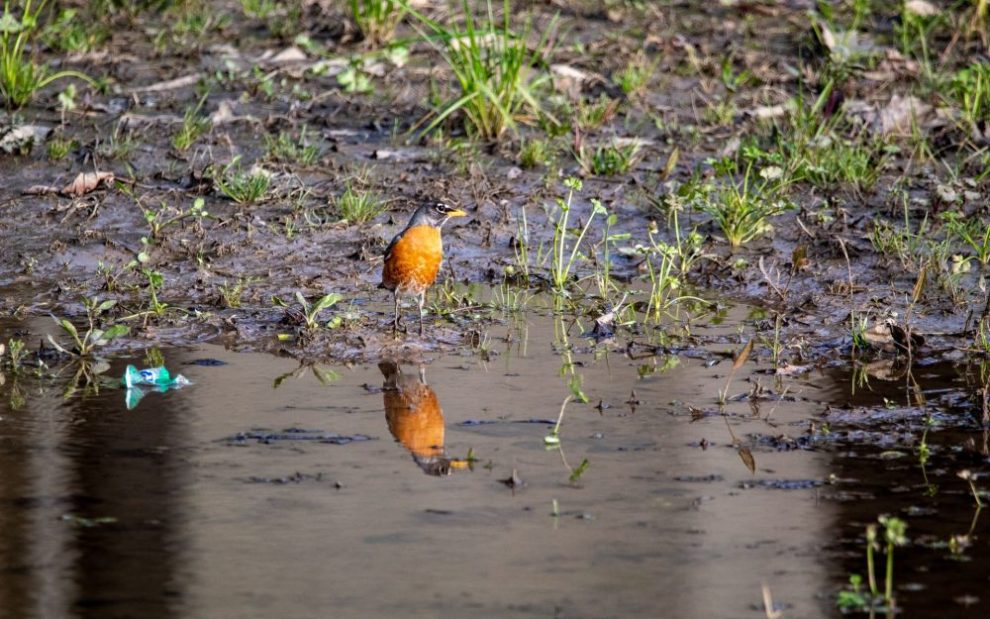Having grown up in a terribly emotionally and often physically abusive family, I had two refuges. One was the woods and waters surrounding Theodore Roosevelt’s home, Sagamore Hill. The quiet woodlands and calming waters afforded me respite from the chaos in my house. The other was the Gothic-style granite church that sat atop the highest point in my childhood hometown, Oyster Bay, an otherwise barely above sea level community. With its enormous stone walls encircling me and melodious hymns emanating from the rare Hooks and Hastings pipe organ bathing me, the church was the one human-made structure in which I felt safe.
It was in the Catholic Church that I was introduced to the life and teachings of St. Francis of Assisi, whose name I would take upon my Catholic confirmation. It was only natural (bad pun intended) I would be drawn, with St. Francis as my mentor, from my one home, the church, to care for my other home and its fellow creatures: the birds, insects, fish, fox, and deer.
With St. Francis’ inclusive message and selfless example as my guide, I became a humanitarian and environmental activist. Most notably but far from most importantly, I served as executive director of Lake Champlain International (LCI) for 22 years. LCI is a nonprofit organization that I founded with the help of kindred spirits dedicated to swimmable, drinkable, and fishable waters for everyone, not just for the privileged among us. That work continues to this day.
After surrendering to my own human weakness pursuing soulless occupations, feeling further alienated from my fellow human beings and my first safe home, nature, I found what St. Francis always preached on: Riches are found not in possessions but in my connection as a brother to all, caring for creation—vivere sine proprio.
While no longer a practicing Catholic, I embrace the ecumenical nature of the Beatitudes, finding interconnectedness in the original words of Christ, St. Francis, and my Jewish, Buddhist, Muslim, and Hindu brothers and sisters. We are never alone when we are at home everywhere. The rivers reach out to me. The wind whistles my name. My brothers and sisters downstream call to me.
This vocation is not a difficult one. I have my bad days, no doubt, but that is not because of my calling; it is when I inevitably fall and forget my purpose. I am most fortunate and grateful to have heard love’s call. With the chains of selfishness, greed, and power weakened, by serving nature I serve my brothers and sisters. I serve all life. I serve love. I serve God. Just as it is pointless for us to attempt grasping that which is not meant to be held, be it the free-flowing waters of our streams or the material possessions of our secular culture, it is in giving, dying, that we are born to eternal life—right now, right here, at home on this amazing planet.
Ironically, it was not until much later in life that I would learn that Roosevelt, a Protestant adherent with a legacy rooted in protection of our natural world, was the first benefactor to fund the construction of that human-made home, the granite chapel atop the hill, that introduced me to St. Francis. We are all connected.
In solidarity, I wish peace and all goodness for creation everywhere. May we all live without grasping, rich, free to flow in creation’s boundless love, giving, and receiving. At home with one another.
This article also appears in the November 2021 issue of U.S. Catholic (Vol. 86, No. 11, pages 13-14). Click here to subscribe to the magazine.
Image: Unsplash/Joshua J. Cotten














Add comment